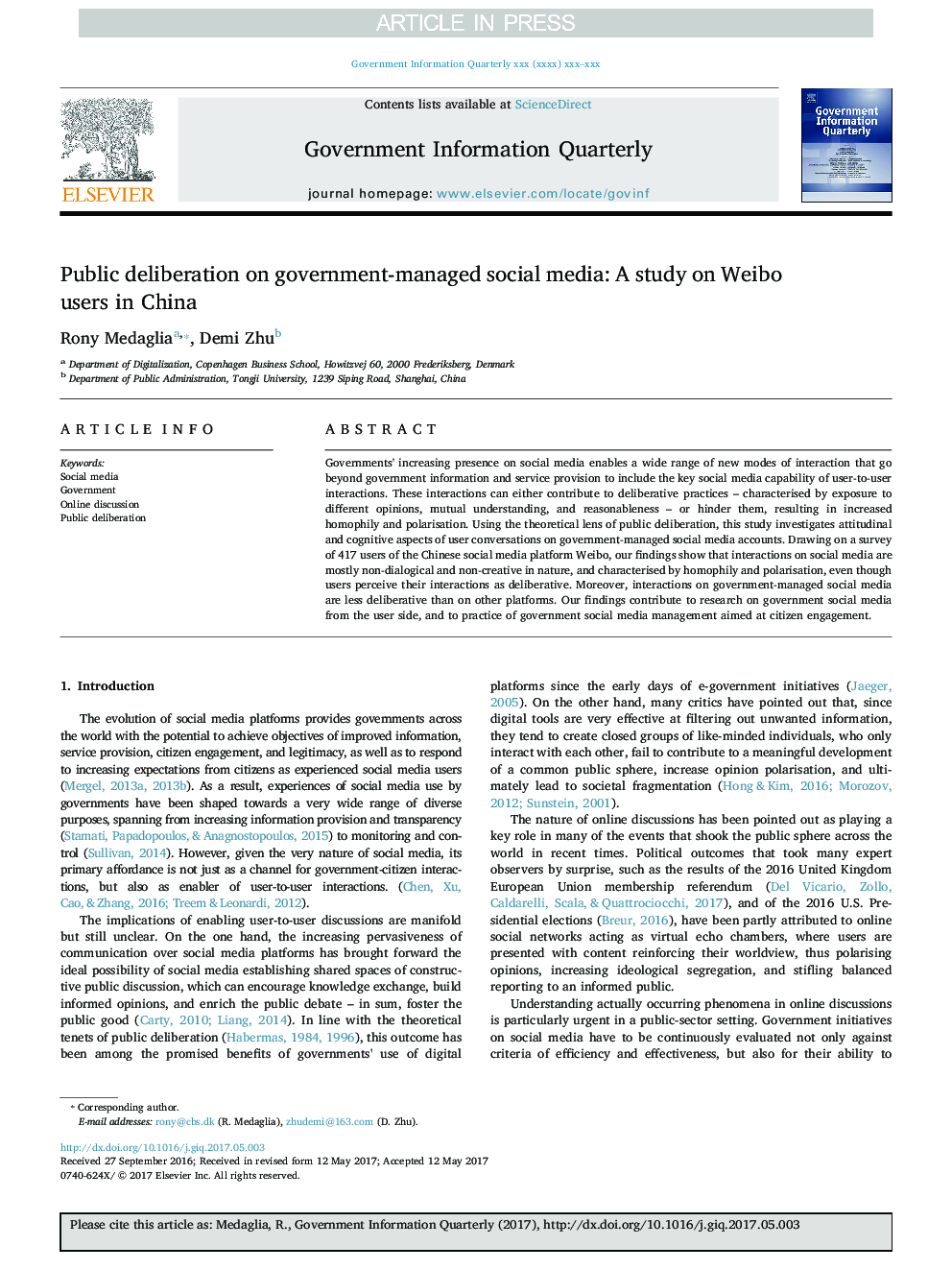| Article ID | Journal | Published Year | Pages | File Type |
|---|---|---|---|---|
| 7428632 | Government Information Quarterly | 2017 | 12 Pages |
Abstract
Governments' increasing presence on social media enables a wide range of new modes of interaction that go beyond government information and service provision to include the key social media capability of user-to-user interactions. These interactions can either contribute to deliberative practices - characterised by exposure to different opinions, mutual understanding, and reasonableness - or hinder them, resulting in increased homophily and polarisation. Using the theoretical lens of public deliberation, this study investigates attitudinal and cognitive aspects of user conversations on government-managed social media accounts. Drawing on a survey of 417 users of the Chinese social media platform Weibo, our findings show that interactions on social media are mostly non-dialogical and non-creative in nature, and characterised by homophily and polarisation, even though users perceive their interactions as deliberative. Moreover, interactions on government-managed social media are less deliberative than on other platforms. Our findings contribute to research on government social media from the user side, and to practice of government social media management aimed at citizen engagement.
Related Topics
Social Sciences and Humanities
Business, Management and Accounting
Business, Management and Accounting (General)
Authors
Rony Medaglia, Demi Zhu,
